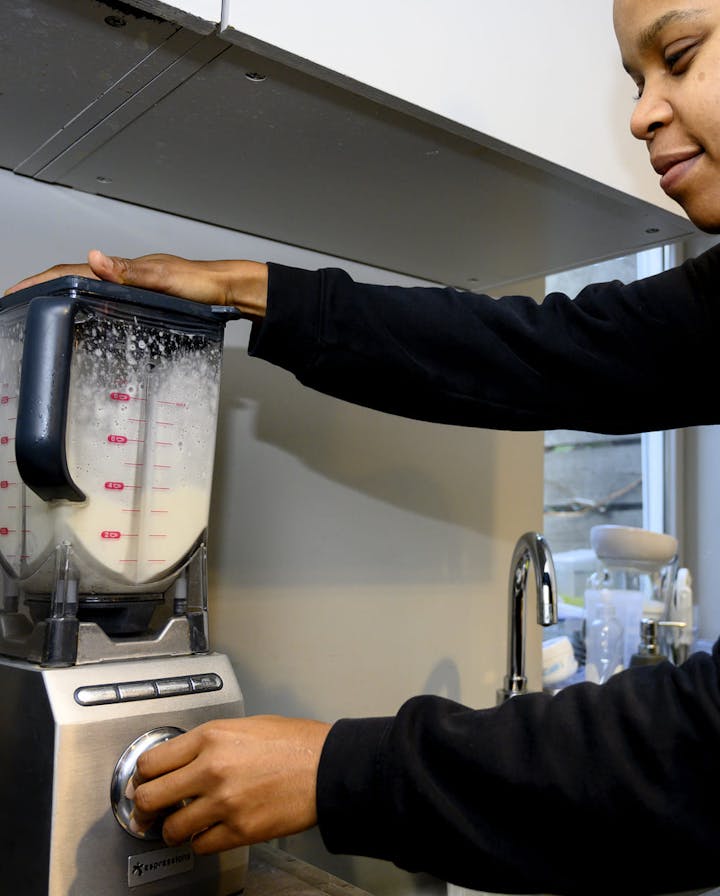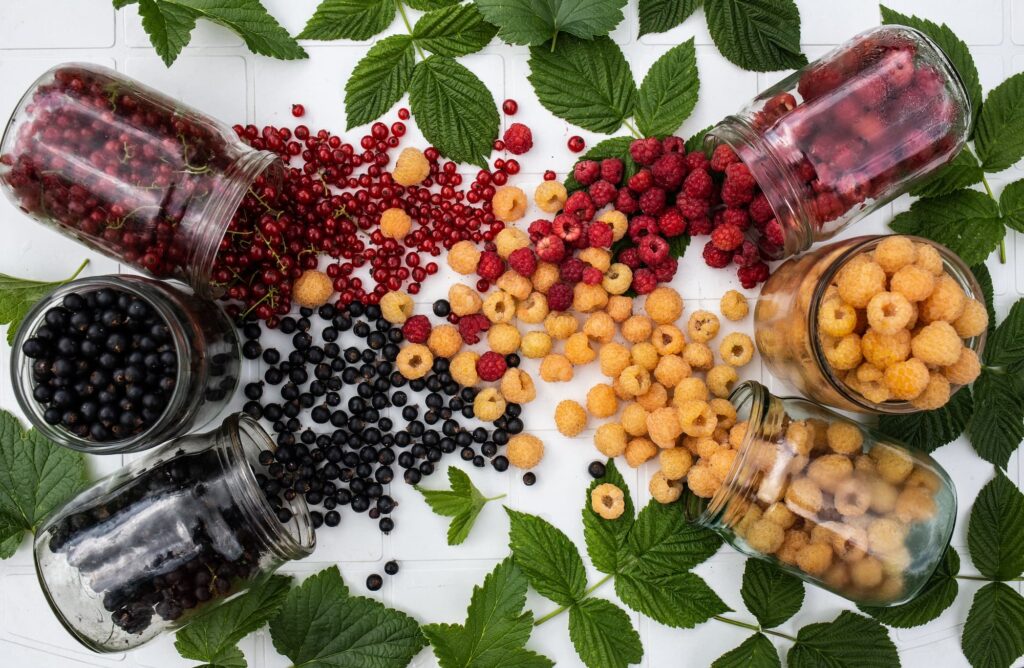A healthy diet consists of an adequate amount of proteins, as they are essential building blocks for our bodies. In this article, we’ll share what proteins are, why it’s beneficial to consume enough of them, and what a good ratio entails!
Proteins are one of the three macronutrients in our diet, along with carbohydrates and fats. In this article, we’ll focus on proteins.
Proteins for muscle growth
Consuming sufficient protein is often directly linked to muscle growth. It’s true that having enough protein is crucial for muscle formation and recovery. Especially if you regularly exercise, it’s important to ensure you get enough protein to achieve optimal results in both fat loss and post-workout recovery. However, there are other benefits that demonstrate the importance of proteins!
What do proteins do for your body?
Adequate protein intake promotes healthy bones, balances brain chemistry, improving deep sleep, and serves as building blocks for neurotransmitters that regulate mood.
Research has also shown that proteins can lower blood pressure and enhance blood vessel function.
Furthermore, consuming proteins can lead to slower digestion and a feeling of fullness, preventing overeating and potential weight gain.

Proteins and muscles
One of the functions of proteins we want to emphasize is that their consumption stimulates muscle protein synthesis. Protein synthesis is crucial because our bodies are in a constant state of transitioning from ‘muscle breakdown’ to ‘muscle gain.’
The body doesn’t have a significant reserve of proteins, so we must continuously supply it with protein to prevent muscle breakdown. If you go without consuming proteins for too long, your body will break down proteins from existing muscle and use them elsewhere. Additionally, the body can use proteins as an energy source when there’s a lack of carbohydrates in the diet.
Building muscle with proteins
You might associate muscle growth with bodybuilders and wonder why it could be relevant for you. It’s important to know that every adult will lose muscle mass after the age of forty, while optimal health depends on preserving muscle mass.
Muscle mass is not just important for strength (preventing discomfort and injuries), but also for overall body function (e.g., changing digestion and hormone regulation) and overall quality of life, especially as you age. Adults tend to accumulate extra abdominal fat after their forties, and this is directly related to maintaining a healthy muscle-to-fat ratio.
How much protein per day? Here’s the calculation!
What’s the recommended protein intake? While the Dutch National Nutrition Center suggests 0.83 grams of protein per kilogram of body weight, several scientific studies propose 1.6 grams per kilogram of body weight for optimal protein synthesis.
For a 75-kilogram adult, this translates to an intake between 62.25 and 120 grams of protein per day. For athletes and individuals engaged in strength training, consuming up to 2 grams of protein per kilogram of body weight could be beneficial. Additionally, the protein requirement may be higher for those following a plant-based diet.

Dividing protein intake throughout the day
Our advice is to distribute protein intake across different meals throughout the day. This allows your body to digest it more efficiently and consistently supports muscle growth (rather than breakdown). Another important aspect when consuming proteins is to ensure sufficient fiber intake to aid digestion. Don’t forget to incorporate enough vegetables into your daily meals!
Amino acids and proteins
Protein sources differ in their ability to stimulate muscle protein synthesis. The key factors determining the muscle-building effect of proteins are their digestion speed and amino acid composition. Proteins are composed of amino acids, and we have two different types: essential and non-essential amino acids. The body can produce non-essential amino acids on its own, but essential amino acids must be obtained from food.
Plant-based proteins
It’s worth noting that animal protein sources generally have a higher content of non-essential amino acids and are more potent in stimulating muscle protein synthesis compared to plant-based protein. If you’re mindful of consuming sufficient proteins on a plant-based diet, it’s essential to focus on a varied diet, combine multiple protein sources, consume more protein throughout the day, or consider supplementing with specific protein/amino acids. Additionally, high-quality, specially formulated whey proteins, such as those found in protein shakes, can also be a good source.
Best and healthiest protein sources
We can conclude that protein is an essential macronutrient that plays a vital role in building and repairing tissues, supporting immune function, and producing enzymes and hormones. Choosing high-quality and healthy protein sources can contribute significantly to overall health.
Lean meats such as chicken breast and turkey are excellent options, offering a high protein content with minimal saturated fats. Fish, particularly fatty fish like salmon, mackerel, and tuna, provides not only protein but also omega-3 fatty acids, which are beneficial for heart health.
Plant-based protein sources are equally nutritious. Legumes such as lentils, chickpeas, and black beans are rich in protein, fiber, and various vitamins. Tofu, tempeh, and edamame are popular soy-based proteins that are versatile and low in fat. Nuts and seeds, including almonds, chia seeds, and pumpkin seeds, provide protein along with healthy fats and minerals.
Eggs are another excellent source of complete protein, containing all nine essential amino acids. For dairy lovers, low-fat options like Greek yogurt, cottage cheese, and milk are both high in protein and calcium.
A balanced diet with a variety of these protein sources ensures you receive a mix of essential nutrients while supporting muscle growth, maintaining energy levels, and promoting overall well-being. Have a look at our article about high protein recipes to find some inspiration for healthy meals!
If you have any questions or need assistance, feel free to seek advice from our dietitians and personal trainers at Amsterdam Oud-Zuid!

